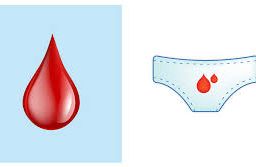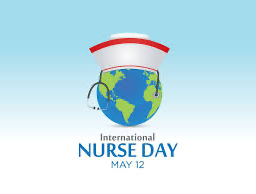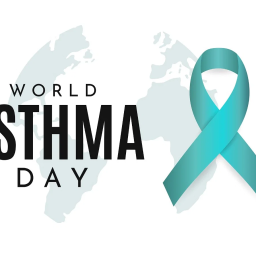
Breastfeeding Awareness 2023: Key Initiatives and Events
Welcome to Breastfeeding Awareness Month 2023! This August, we embark on a journey to celebrate and advocate for breastfeeding, emphasizing the crucial intersection of breastfeeding and work. Join us as we explore the benefits, challenges, and initiatives aimed at making breastfeeding and work seamlessly coexist, empowering working mothers in their professional and nurturing roles.

Welcome to Breastfeeding Awareness Month 2023! August is a special time when we come together to celebrate the incredible journey of breastfeeding and raise awareness about its importance for both mothers and infants. This year, we focus on the theme “Let’s make breastfeeding and work, work!” as we emphasize the significance of supporting and empowering working mothers to continue breastfeeding while pursuing their professional goals. Breastfeeding is a natural and essential process that provides numerous benefits for both mother and baby. In recognition of the importance of breastfeeding, August has been designated as Breastfeeding Month. This annual observance aims to raise awareness about the advantages of breastfeeding and encourage support for mothers who choose to breastfeed their infants. Join us as we explore the benefits of breastfeeding, the challenges faced by working mothers, and the initiatives that can create a breastfeeding-friendly work environment.
The Benefits of Breastfeeding

Breastfeeding is one of the most beautiful and natural acts of nurturing a mother can provide for her child. Beyond the bonding it fosters, breast milk is a powerhouse of essential nutrients, antibodies, and growth factors that help build a strong immune system in infants. Studies have shown that breastfeeding can reduce the risk of various health conditions in both mother and child, including infections, allergies, obesity, and even certain types of cancer. This amazing ability of breastfeeding to protect and promote lifelong health is something we must celebrate and promote.
Breast milk is often referred to as “liquid gold” due to its remarkable nutritional composition. It contains all the necessary nutrients, antibodies, and enzymes that a baby needs for healthy growth and development. Breast milk is easily digestible, which reduces the risk of gastrointestinal issues such as constipation or diarrhea. Moreover, breast milk provides protection against various infections and diseases, thanks to the antibodies passed from mother to baby.
Breastfeeding has long-term benefits as well. Studies have shown that breastfed babies have a lower risk of developing chronic conditions such as obesity, diabetes, asthma, and certain types of cancer later in life. The act of breastfeeding also promotes bonding between mother and baby, fostering a strong emotional connection that can have positive effects on the child’s social and emotional development.
Balancing Breastfeeding and Work: Challenges Faced by Working Mothers
While breastfeeding is a natural process and offers countless benefits, it can come with its fair share of challenges. Many new mothers may experience difficulties in establishing a successful breastfeeding routine. Common challenges include latching issues, low milk supply, engorgement, sore nipples, and mastitis. These challenges can be physically and emotionally draining for mothers, leading some to consider alternative feeding methods.
To overcome these challenges, it is crucial for mothers to seek support from healthcare professionals, lactation consultants, and support groups. These resources can provide guidance, practical tips, and emotional support to help mothers navigate through the initial difficulties and establish a successful breastfeeding relationship with their babies.
The challenge for many working mothers lies in maintaining this practice while managing their professional responsibilities. Returning to work after maternity leave can be daunting, as mothers grapple with finding the time and space to express milk during working hours. The lack of breastfeeding-friendly workplaces, limited breaks, and the stigma surrounding breastfeeding can hinder a mother’s ability to continue nursing her child.
Let’s Make Breastfeeding and Work, Work!
To ensure that breastfeeding and work can coexist harmoniously, it’s vital to take collective action. Employers, colleagues, and society as a whole can play a crucial role in supporting working mothers by providing designated spaces for breastfeeding or expressing milk, allowing flexible work schedules, and offering paid maternity leave. Family members can offer practical assistance, emotional support, and understanding to breastfeeding mothers. Society can contribute by promoting public acceptance of breastfeeding and ensuring that public spaces are breastfeeding friendly. Here are some initiatives we can take to make breastfeeding and work, work:
1. Flexible Work Arrangements: Employers can consider implementing flexible work hours or remote work options, allowing mothers to create a better work-life balance, and integrate breastfeeding into their daily routines.
2. Dedicated Lactation Spaces: Providing comfortable and private lactation rooms within workplaces can enable mothers to express milk without feeling embarrassed or stressed.
3. Extended Maternity Leaves: Encouraging longer maternity leaves can give new mothers more time to establish breastfeeding before returning to work.
4. Education and Awareness: Raising awareness about the benefits of breastfeeding and destigmatizing it in workplaces can foster a supportive environment for working mothers.
5. Breastfeeding Support Groups: Employers can facilitate support groups or create forums where working mothers can share experiences, advice, and encouragement.
6. Inclusive Workplace Policies: Updating workplace policies to explicitly support breastfeeding employees and protect their rights is essential.
7. Creating a Supportive Environment: Creating a supportive environment is essential to encourage and enable mothers to breastfeed successfully. This involves the active involvement of healthcare providers, employers, family members, and society as a whole. Healthcare providers should provide accurate and evidence-based information about breastfeeding, as well as offer guidance and support to mothers throughout their breastfeeding journey.
The Role of Breastfeeding Advocacy
Breastfeeding advocacy plays a crucial role in raising awareness about the benefits of breastfeeding and promoting supportive policies and practices. Organizations such as the World Health Organization (WHO) and UNICEF actively advocate for breastfeeding as the optimal feeding method for infants. They work towards implementing policies that protect, promote, and support breastfeeding, such as the Baby-Friendly Hospital Initiative.
Breastfeeding awareness campaigns, community education programs, and social media campaigns also contribute to promoting the importance of breastfeeding. These initiatives aim to dispel myths and misconceptions surrounding breastfeeding, address cultural barriers, and empower mothers with knowledge and resources.

As we celebrate Breastfeeding Awareness Month in 2023, let’s rally together to make breastfeeding and work, work! By creating a supportive and understanding work environment, we empower mothers to continue providing the best nourishment for their children. Breastfeeding Month serves as a reminder of the numerous benefits that breastfeeding offers to both mother and baby. Breast milk provides optimal nutrition, boosts the immune system, and promotes healthy growth and development. While breastfeeding can present challenges, with the right support and resources, mothers can overcome these obstacles and establish a successful breastfeeding routine. Creating a supportive environment that encourages breastfeeding is crucial for the well-being of both mothers and babies. By promoting breastfeeding awareness and advocating for supportive policies, we can ensure that more mothers are empowered to provide the best start in life for their infants. Remember, supporting breastfeeding isn’t just a responsibility; it’s an investment in the health and well-being of future generations. Let’s champion this cause and build a brighter, healthier future for all!
Disclaimer: The information provided in this content is for general informational purposes only. It is not intended as medical or healthcare advice, diagnosis, or treatment. Always seek the advice of a qualified healthcare professional with any questions you may have regarding a medical condition or healthcare decisions.
















